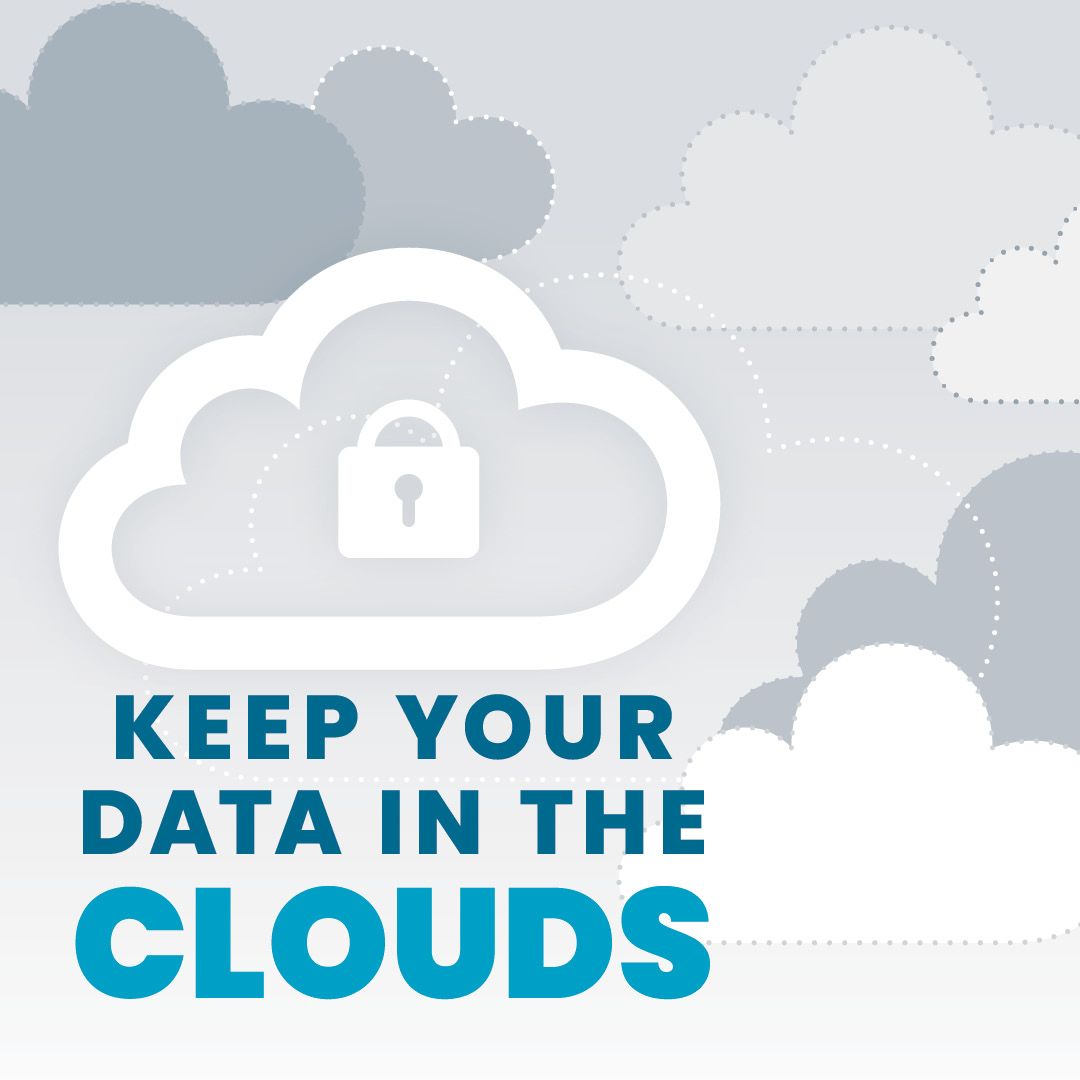Why should your business migrate to the cloud?
by Jon Lober | NOC Technology

The future is looking cloudy– and we think that's a good thing.
Over the past decade, many businesses have migrated their computing needs to the cloud. Here are four of the reasons why they made the switch.
1. Flexibility and Scalability
For many users, this is the biggest advantage of the cloud. By switching to a cloud computing platform, you can access all of your office’s software and programs from a virtual desktop accessible through any internet browser.
Many of us have become accustomed to working in the cloud without even realizing it. Thanks to the cloud, our emails are now available nearly anywhere, and we often share files through dedicated platforms. By moving to a full cloud solution, you simply extend that convenience to your office desktop.
In practical terms, this means that you can do anything that you want do on your office computer from anywhere, anytime. Need to process payroll when you run home at lunch? Want to work on a proposal for the next day’s meeting from your bed? Have to tweak some design details in SolidWorks or Illustrator while your child is home sick? Concerned about the follow-up on your newest lead in SalesForce while you are on vacation?
With the cloud, you and your coworkers can access shared software, files, and communications software from any computer. If your laptop is broken, stolen, or under repair, you can access your exact desktop setup from any other computer.
This same convenience extends to the addition of new employees to your business cloud. You can simply add permissions to individuals in order to grant them access to the company’s digital resources – without any need to set up finicky software on their computer. The same is true on the other end of the employment cycle. If an employee is leaving, or trust becomes an issue, you can remotely severe that employee’s access to your business cloud without even leaving your office.
2. Simplicity of Migration Process
With a cloud expert guiding the process, a cloud migration can be remarkably painless for a business.
Imagine that you need to move to a new home. In this case, you hire a moving company, which comes to pack up your home office. You have everything straightened up when they arrive. They carefully place every computer, cord, stapler, and printer neatly into boxes, label them, and stack them by the door. Once everything is ready, they load up those boxes in their truck and drive them across town. Before you can even arrive to your new address, they take everything out, arrange it precisely as it was before and plug it all in. You walk into an exact replica of your old office, ready to sit down in your chair and get to work.
When you move to the cloud, a cloud expert can manage this process for you in the digital world through cloud “migration.” Once you’ve straightened up your files and software, they pack up your desktop and move it into the cloud. To open the door to your new digital office, you simply sign in via an internet browser and sit down to start working where you left off.
3. Data Security
Humanity has always done its best to hide and protect what it values. One thousand years ago, we locked our treasures in sturdy chests and sealed them into the stone walls of cathedrals and pyramids. One hundred years ago, we forged steel safes with keys, combinations, and security systems. Today we use encryption, firewalls, and two-factor authentication to lock away our important data. Why all of the effort? Because no matter the time period, if we have something valuable, someone else is trying to take it.
A cloud expert can facilitate the most secure set-up possible for your business by using a combination of firewalls, encryption, private and public cloud storage, multi-factor authentication, and automated threat detection. It may seem counter-intuitive that your data is safer stored in an off-premise server, but unless you have an extensive IT budget, the cloud is a more secure location to base your business’s computing needs.
The cloud offers next-level security for your business data. The right provider can facilitate the modern-day equivalent of a lockbox in an off-site fortress – providing far more security than you could feasibly implement on site. A good cloud-storage facility offers multiple levels of physical and technological security that makes it extremely difficult for a thief to break through. Proper encryption protocols will also make sure that your data is completely safe when it is in-transit between your local computers and the cloud storage facility.
4. Data Availability and Durability
In the world of IT lingo, data availability answers the question “How often can you access your data when you want to?” In contrast, data durability answers the question “How likely are you to permanently lose your data?”
Availability
A decent on-site server at a small business might provide 99% or 99.9% uptime for its users. In contrast, a good cloud server will offer at least 99.99%+ on-demand availability. Although it might seem minimal, the difference between an uptime of 99.9% and 99.99% is immense. At 99.9%, that 0.1% of downtime represents nearly 9 hours of downtime per year. At 99.99%, downtime drops to about 53 minutes per year.
How often does your office’s server go down? How does that affect your office’s productivity? A 15-minute loss of server access can easily translate into an hour or more of lost work, and an hour or more of downtime can derail an entire day. Each additional hour of server uptime can have an outsized impact on the productivity of your business. A good cloud service keeps your business running smoothly by ensuring minimal downtime.
Durability
Storms, fires, natural disasters, and thefts are all very real threats to an on-site server. Compared to on-site servers, clouds can offer exceptional protection against disasters. However, not all clouds are created equal. Many cloud services do not provide any backup at all, which is why it is important to consult with a cloud expert when you migrate to ensure that your data is protected against loss by using clouds. When used correctly, cloud
Redundancy measures like mirroring, backups, and replication guarantee that you always have access to at least one copy of your data. Even if one server is down, or some terrible event destroys the data on one server – another server has a fresh copy of your data ready to go. Geo-replication is an advanced version of redundancy available through some cloud services that provides an extra layer of security. By keeping your data updated in several different geographic locations, this measure provides significant protection against total loss due to fire, natural disaster, or other extreme issues.
5. Predictable Operating Expenses
By moving server functions offsite, you effectively eliminate the need for an onsite server. For most cloud services, you simply pay a monthly amount to an IT provider for hosting and maintaining a specified amount of space. This allows you to move potentially large capital expenses for server upgrades and network maintenance into a single, stable operational expense. This not only saves your budget, but also your sanity if your server were to suddenly go down or need extensive upgrades.







